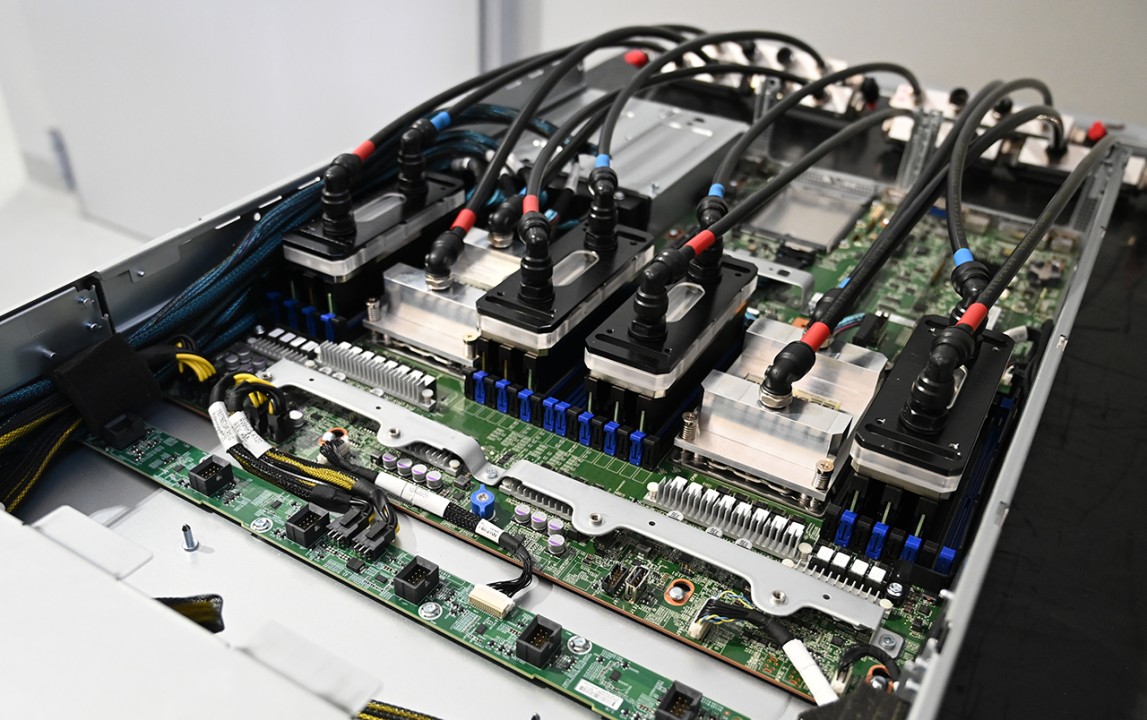

At ISC in Hamburg, the Italian company unveiled a new cooling system that ensures greater efficiency and effectiveness of HPC systems
Autore: By InnovationOpenLab

In past years, E4 Computer Engineering Spa has brought innovative solutions and technologically advanced prototypes to ISC. This year, E4 premiered the Textarossa liquid-cooled server prototype, featuring an innovative two-phase cooling system that enables HPC systems to reach new levels of performance and energy efficiency, solving the historical dilemma of thermal management.
Temperature is a critical issue in HPC centers that host many computing elements, because a significant portion of the consumed energy is used by the cooling system, which directly impacts on systems' reliability and energy efficiency.
The approach of the Textarossa project combines an advanced two-stage cooling device with multi-level thermal control strategies to effectively address thermal challenges at both the system and node levels. The goal of the European Textarossa project is to contribute to the goals outlined in the EuroHPC Strategic Research and Innovation Agenda and the ETP4HPC Strategic Research Agenda.
"E4 has always played a role of excellence in the HPC world, with projects of international importance," explains Cosimo Gianfreda, CEO of E4 Computer Engineering. "In Textarossa we have combined our advanced skills with the technological partnerships we have forged over the years, to create a system that opens up unprecedented perspectives to the world of research and industry."
To meet the needs of large-scale HPC centers, achieving high efficiency while staying within power and energy limits is a significant challenge. Researchers must consider several factors within the HPC hardware/software stack, including the use of specialized and highly efficient hardware accelerators, effective management of software resources, and advanced cooling systems.
The TEXTAROSSA project addresses these challenges by prioritizing thermal control, energy efficiency, performance, and seamless integration of new accelerators based on reconfigurability principles. The development of a new two-stage cooling system aims to provide an efficient and cost-effective solution to meet the requirements of the current generation and prepare the appropriate technologies for the next generation of HPC infrastructure.
According to Dell'Oro Group, the use of liquid cooling in data center thermal management represents a particularly significant growth opportunity in the evolution of physical data center infrastructure, which is expected to grow dramatically - up to $32 billion by the end of 2026.